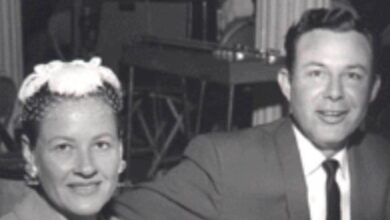Elvis Reigns Supreme, Despite Numerous Artists Covering This Song.
Elvis Presley’s 1972 recording of “Funny How Time Slips Away” highlights his ability to breathe new life into classic songs while maintaining their original essence. The song, originally penned and performed by Willie Nelson in 1961, is a reflective ballad that delves into the transient nature of time and its impact on relationships. Elvis’s rendition adds a layer of his distinct emotional depth and vocal charm, showcasing his versatility as an artist.
Willie Nelson’s original version of “Funny How Time Slips Away” is a poignant exploration of how time can affect personal connections and self-reflection. Nelson’s heartfelt delivery and lyrical composition resonate with the universal experience of time’s relentless march and its capacity to alter one’s circumstances and relationships. The song’s reflective mood is carried through its melody and lyrics, which Elvis preserved while adding his own interpretive flair.
In Elvis’s version, his smooth and soulful voice brings a unique quality to the song. His vocal performance is marked by a nuanced delivery that underscores the emotional weight of the lyrics. Elvis’s interpretation maintains the song’s reflective nature but infuses it with his signature style, characterized by a rich timbre and impeccable phrasing. His ability to convey deep emotion through his voice enhances the song’s impact, creating a memorable listening experience.
The 1972 recording features a melodic arrangement that complements Elvis’s vocal performance. The instrumental backing is subtle yet effective, providing a gentle foundation that supports and accentuates his voice. The arrangement reflects a thoughtful balance, allowing the lyrics and Elvis’s emotive delivery to remain at the forefront. This arrangement helps create an intimate atmosphere that draws listeners into the song’s reflective mood.
Elvis’s rendition of “Funny How Time Slips Away” stands as a testament to his exceptional ability to connect with audiences through his music. His performance captures the essence of the song while adding his personal touch, demonstrating his skill as a versatile artist who could adapt and reinterpret a wide range of material. This ability to infuse his unique style into classic songs is a hallmark of his enduring legacy.
Throughout his career, Elvis Presley was known for his capacity to interpret songs in a way that made them uniquely his own. His version of “Funny How Time Slips Away” exemplifies this talent, showcasing how he could take a well-established song and make it resonate with his own emotional depth and vocal prowess. This recording remains a cherished piece of his discography, celebrated for its heartfelt performance and musical integrity.
Elvis’s impact on the music industry extends beyond his own recordings. His ability to bring new life to songs, as evidenced by his rendition of “Funny How Time Slips Away,” has influenced countless artists and shaped the way music is approached and appreciated. His contributions to music are recognized for their originality and emotional resonance, reinforcing his status as one of the greatest performers in history.
The song’s lyrical content, which explores the passage of time and its effects on personal relationships, finds a profound expression in Elvis’s performance. His ability to convey the bittersweet nature of the lyrics through his voice adds a layer of emotional complexity that enhances the song’s overall impact. This interpretation underscores the universal appeal of the song’s themes, making it relevant across different generations.
Elvis Presley’s 1972 recording of “Funny How Time Slips Away” remains a highlight of his extensive body of work. It serves as a reminder of his extraordinary talent and his ability to connect deeply with listeners through his music. His version of the song continues to be appreciated by fans and critics alike, reflecting his enduring influence and the timeless quality of his artistry.





